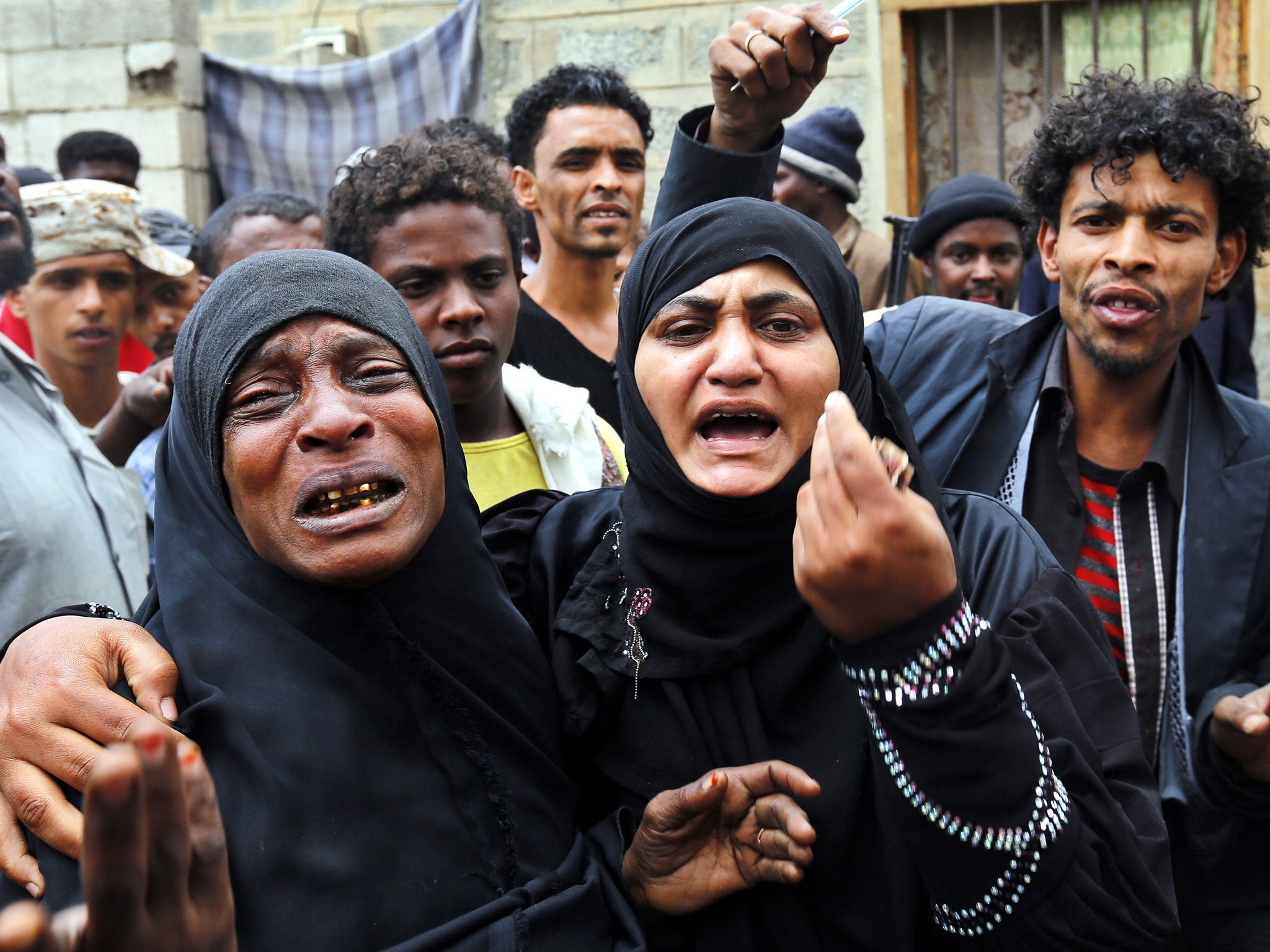Yemen crisis: With the Iran nuclear deal done, John Kerry must now sort out the Saudis
Prince Mohamed's warriors of the air seem to be having as little effect on his Houthi enemies as America's are having on Isis in Iraq and Syria


Your support helps us to tell the story
From reproductive rights to climate change to Big Tech, The Independent is on the ground when the story is developing. Whether it's investigating the financials of Elon Musk's pro-Trump PAC or producing our latest documentary, 'The A Word', which shines a light on the American women fighting for reproductive rights, we know how important it is to parse out the facts from the messaging.
At such a critical moment in US history, we need reporters on the ground. Your donation allows us to keep sending journalists to speak to both sides of the story.
The Independent is trusted by Americans across the entire political spectrum. And unlike many other quality news outlets, we choose not to lock Americans out of our reporting and analysis with paywalls. We believe quality journalism should be available to everyone, paid for by those who can afford it.
Your support makes all the difference.Prince Mohamed bin Salman’s “Operation Decisive Storm” doesn’t look very decisive today. Three months after the Saudi defence minister unleashed his American-made bombers against Iran’s Shia friends in Yemen, the best his own allies in the country can do is tramp on to the apron of Aden’s wrecked airport and proclaim a little victory.
With well over 3,000 dead, half of them civilians, Prince Mohamed’s warriors of the air seem to be having as little effect on his Houthi enemies as America’s are having on Isis in Iraq and Syria.
And now while Prince Mohamed’s father – King Salman of Saudi Arabia – observes the gloomy stalemate in his son’s battle against Iran’s proxies, the monarch has to take a call from Barack Obama so that the US President can assure the king that he has nothing to worry about America’s new nuclear deal with the very same Iranians who support the Houthis. Did the two also talk about the Saudi quagmire in Yemen? Or was this left discreetly – and wisely – to one side?
Ignored these past few days is how central Secretary of State John Kerry has been to both mutually antagonistic projects. The American hero of Vienna, in the eyes of the Western world, is currently the man who spent 18 days persuading the Iranians to castrate their nuclear dreams.
Yet it was the same John Kerry who made a conference call to the Saudis and their Gulf allies last March after Prince Mohamed gave him three hours’ warning of the Saudi blitz on Yemen. Kerry, in the words of a US State Department official, “commended the work of the [Arab] coalition taking military action against the Houthis” and noted Washington’s “intelligence-sharing, targeting assistance, and advisory and logistical support for strikes against Houthi targets….” As if this wasn’t enough, a lady from the National Security Council added that “we are establishing a Joint Planning Cell with Saudi Arabia to coordinate US military and intelligence support.”
The US may have liked to fudge all this at the time by agreeing with the Saudis that “political negotiations” remained the best way to resolve the Yemen crisis – the old Arab (and American) policy of “bomb now, talk later” – but it is inconceivable that Washington’s new relations with Iran are not going to interrupt America’s supposedly wholehearted support for the grim adventure that King Salman and his son embarked upon almost three months ago.
In its new post-Vienna role as proud peace-dealer of the Middle East, Iran will most certainly urge Washington to smother Saudi ambitions in Yemen and prevent further civilian casualties from Saudi air raids. The king may even be tempted to go along with this – not least because Pakistan long ago declined to send its own “poor bloody infantry” into the Yemen inferno as proxies for the soldiers of Saudi Arabia.
For lighter relief, we might turn to another conflict, cartoons. An Iranian cartoon competition on the Yemen war produced a sketch of the Saudi flag – it bears a sword – in which the sword flies off the flag and turns into a fighter-bomber. A Saudi newspaper has now printed a cartoon of Iran’s Supreme Leader, Ali Khamenei, turning on his post-sanctions oil spigot, from which spews thousands of dollars – all greedily consumed by a creature labelled “terrorism”. It could have appeared in any Israeli daily. Indeed, perhaps it will.